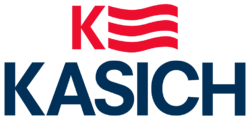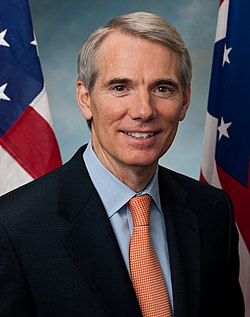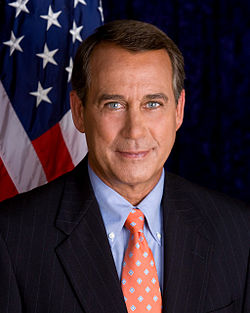 | |
| Campaign | U.S. presidential election, 2016 |
|---|---|
| Candidate | John Kasich Governor of Ohio (2011–2019) |
| Affiliation | Republican Party |
| Status | Announced: July 21, 2015 Suspended: May 4, 2016 |
| Headquarters | Columbus, Ohio |
| Key people | Matt Carle, campaign manager |
| Receipts | (2015-09-30 [1] ) |
| Slogan |  |
| Website | |
| www.johnkasich.com | |
This is a list of prominent individuals and organizations that voiced their endorsement of John Kasich as the Republican Party's presidential nominee for the 2016 U.S. presidential election.
Contents
- Federal cabinet-level officials
- Former
- Governors
- Current
- Former 2
- U.S. Senators
- Current 2
- Former 3
- U.S. Representatives
- Current 3
- Former 4
- U.S. Ambassadors
- Statewide officials
- State legislators
- Arizona
- Arkansas
- Colorado
- Delaware
- Georgia
- Idaho
- Illinois
- Iowa
- Kentucky
- Louisiana
- Maine
- Maryland
- Massachusetts
- Michigan
- Mississippi
- Missouri
- Nevada
- New Hampshire
- New Jersey
- New York
- North Carolina
- Ohio
- Oregon
- Pennsylvania
- Rhode Island
- South Carolina
- Tennessee
- Utah
- Vermont
- Virginia
- West Virginia
- Mayors and other municipal leaders
- Republican National Committee members (current and former)
- Businesspeople
- State parties
- Other political individuals
- Newspapers
- Organizations
- Celebrities, commentators, and activists
- See also
- References








